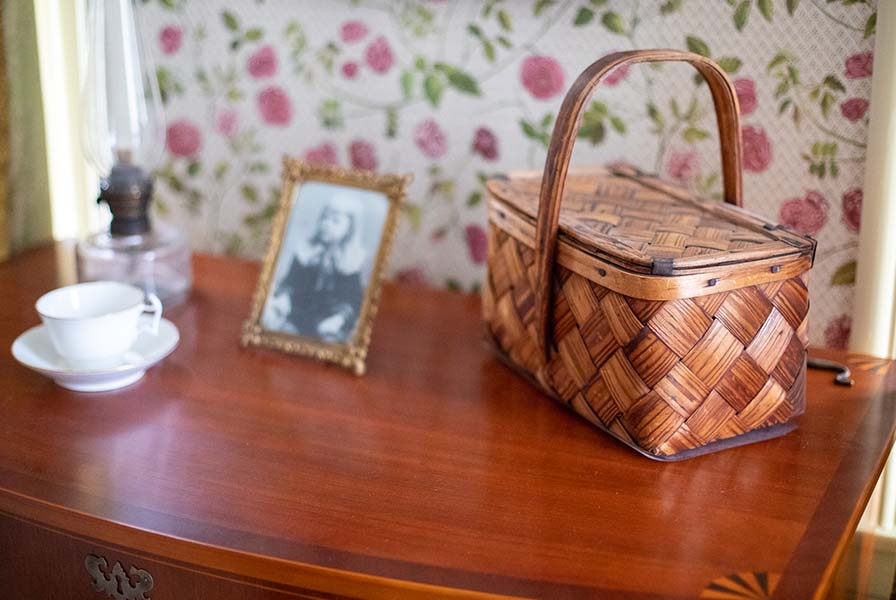Demands of housework on middle-class women in the 19th-century were high, and Dickinson found it irksome, writing “‘House’ is being ‘cleaned’ – I prefer pestilence.” She was fortunate that by her twenties, the family could afford to hire help to bear the brunt of this work. Still, Emily Norcross Dickinson raised her daughters to be well-versed in the domestic arts. Many mornings the poet awoke before dawn and headed downstairs to the kitchen to get fires going and start making bread. She enjoyed baking immensely, and local children played by her bedroom window, waiting to taste the gingerbread she lowered to them in a basket.
Emily Dickinson to Elizabeth Holland (L318), early May 1866, in The Letters of Emily Dickinson, ed. Thomas H. Johnson (Cambridge, MA: Belknap Press of Harvard University Press, 1958), 2:452–453.
MacGregor Jenkins, Emily Dickinson, Friend and Neighbor (Boston: Little, Brown, & Co., 1930), 39–40.
